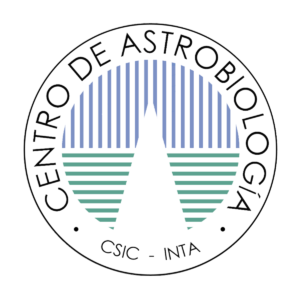The María de Maeztu Academy of the Centro de Astrobiología closed the 2020-2021 academic year on June 15 with the final of the first edition of the transdisciplinary challenges. The winning team was that of the Biomarkers objective, formed by the CAB and INTA researchers: Jorge Lillo-Box, Patricia Cruz, David Ruano Gallego, Mercedes Moreno-Paz, Alberto Álvarez Saavedra and Cristina Escudero. The project they submitted, “The Maisha Enterprise”, intends to design an Inhabitability Decision Tree (IDT) that unifies several key conditions for a given planet to be able to host life like that on Earth. The second prize was awarded to the team dedicated to the Exoplanet objective, with the project “ExoPhot: Photosynthetic systems in exoplantes”. The other two participating teams were the Solar System team with the project “NEXT (iN situ EXploration of planeTary objects): Europa” and the Simulation team with a project on microbial life on Titan.
The challenges are a training activity of the María de Maeztu Academy aimed at developing new skills and generating relevant scientific-technical solutions in the field of Astrobiology. The implementation of the challenge program takes place throughout an academic year and the result is a transdisciplinary work, carried out in teams, which proposes an innovative solution for each challenge or thematic line of the CAB’s María de Maeztu Project. In this first edition, 29 researchers from CAB and INTA have participated. The training program began in September 2021 with a series of specialized talks on space projects, covering aspects such as quality, project management, qualification, scientific aspects and systems engineering. Teams were then formed with volunteers from different CAB and INTA departments and different areas of expertise. Throughout 2020-2021, several periodic reviews of the proposals were carried out, passing different milestones and receiving expert comments in each evaluation. The final result of this work are four independent proposals, with detailed documentation, in which the participants describe how to implement an innovative solution for each of the lines of work of the Centro de Astrobiología’s María de Maeztu Project of Excellence.
Finally, after evaluating the potential, maturity, viability and relationship with the objectives of the María de Maeztu project and Astrobiology, the CAB’s MdM Executive Committee has decided to financially support the four teams to develop the proposed projects in the 2021/2022 academic year, until the end of the María de Maeztu programme.
The four challenges presented and their respective teams were:
Challenge 1 – Solar System
“NEXT (iN situ EXploration of planeTary objects): EUROPA”
Identify the best RAMAN technique to explore the surface of Europa, Jupiter’s moon, for future missions.
Team: Marina Benito Parejo (Space Optics Dpt. INTA), Juan F. Cabrero Gómez (Space Optics Dpt. INTA), Oscar Ercilla Herrero (Planetology and Habitability Dpt. CAB), Alberto Estrada Piqueras (Astrophysics Dpt.), José Antonio Rodríguez Prieto (Space Programs Dpt. INTA), Ruy Sanz González (Payloads and Space Sciences Dpt. INTA), Jesús Zafra Iglesias (Space Programs Dpt. INTA).
Challenge 2 – Biomarkers, First classified
“The Maisha enterprise“
An inhabitability Decision Tree for extrasolar planets
Team: Jorge Lillo-Box (Astrophysics Dpt.), Patricia Cruz (Astrophysics Dpt.), David Ruano Gallego (Molecular Evolution Dpt.), Mercedes Moreno-Paz (INTA), Alberto Álvarez Saavedra (Astrophysics Dpt.) and Cristina Escudero (Planetology & Habitability Dpt.)
Challenge 3 – Simulation:
“Habitability Studies to evaluate possible microbial life on Titan using a simulation chamber“
Team: María Ángeles Lezcano Vega ( Molecular Evolution Dpt.), Victoria Muñoz-Iglesias (Planetology and Habitability Dpt.), Antonio Molina Jurado (Planetology and Habitability Dpt.), Ana de Dios Cubillas (Planetology and Habitability Dpt.), Marta Ruiz Bermejo ( Molecular Evolution Dpt.), Rita Sofía dos Santos Severino (Molecular Evolution Dpt.), Cristóbal González Díaz (Astrophysics Dpt.), Laura Jiménez Bonales (Molecular Evolution Dpt.)
Challenge 4 – Exoplanets, Second classified
“EXOPHOT: Photosynthetic systems in exoplanets“
Remote search and characterisation of exoplanets, including atmospheric studies
Team: Mercedes Burillo Villalobos (INTA), José Antonio Caballero ( Astrophysics Dpt.), Luis Cerdán (ICMol), Nuria Fonseca Bonilla (Astrophysics Dpt.), Juan García de la Concepción (Astrophysics Dpt.), Felipe Gómez (Planetology and Habitability Dpt.), María Ángeles López Cayuela (Earth Observation, Remote Sensing and Atmosphere Dpt. INTA), Pablo Marcos Arenal (Astrophysics Dpt.)
Collaboration between all departments has emerged in all the teams, which confirms that the challenges is a successful collaborative learning initiative, which has had a great acceptance, has contributed to energising the junior and senior staff of the centre and has brought us closer to one of the most important and ambitious objectives of the María de Maeztu project: transdisciplinarity and collaboration between the different departments of CAB and INTA.













